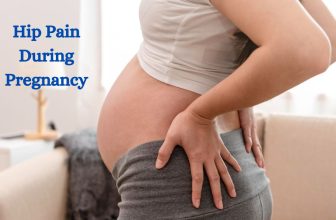How Much Does Milk Supply Decrease During Period?

Breastfeeding is a beautiful and natural experience for mothers and babies, fostering both nutrition and bonding. However, many nursing mothers may face challenges, including fluctuations in milk supply influenced by their menstrual cycle.
So, how much does milk supply decrease during period?
The extent of milk supply reduction during menstruation varies. Factors like cycle duration, cramp intensity, and hormonal fluctuations play roles. Some notice a dip, while others don’t. It’s often minor and shouldn’t disrupt breastfeeding. You can address it by nursing more often and using breast compressions.
In this article, we will explore the topic of how much milk supply can decrease during a woman’s period. Keep reading!
The First Postpartum Period And Milk Supply
After the thrill of welcoming a newborn, nursing mothers often wonder when their first postpartum period will occur and how it may impact their milk supply.
The return of the menstrual cycle is highly individual, varying from woman to woman. Some may see it come back relatively soon after giving birth, while others might not experience it until they wean their baby.
It’s crucial to understand that the initial bleeding after childbirth is not an actual period but lochia – a mixture of blood, mucus, and uterine tissue.
Your first postpartum period may take about six weeks to arrive if you breastfeed exclusively.
If one chooses not to breastfeed, the possibility of its return within three months exists. However, it is essential to note that these timeframes are flexible and can vary significantly from individual to individual.
How Much Does Milk Supply Decrease During Period?
The impact of menstruation on milk supply is a concern for many breastfeeding mothers. To comprehend this, it’s essential to grasp the basics of breastfeeding physiology. Breast milk production hinges on the hormone prolactin, stimulated by a baby’s suckling.
During the menstrual cycle, levels of estrogen and progesterone go up and down, affecting breast milk production. Usually, a decrease in milk supply happens when prolactin levels drop.
The extent of milk supply reduction during a woman’s period varies widely. Factors that influence the menstrual cycle include its duration, the intensity of period cramps, and individual hormonal fluctuations.
Some women may notice a decrease in their milk supply before and during their menstrual periods, while others may not perceive any changes.
For most women, any dip in milk supply during their period is relatively minor. It should not disrupt their breastfeeding journey significantly, and they can return to their regular nursing routine after menstruation ends.
However, it’s worth noting that during premenstrual days, women may experience breast tenderness, swelling, and discomfort, which can cause anxiety about potential milk production issues.

Source: Pinterest
What Can You Do If Your Milk Supply Decreases During Period?
If you experience a decrease in your milk supply during your period, it can be frustrating, but there are several strategies you can try to address this issue:
Increased Breastfeeding
When you notice your milk supply dropping, encourage your baby to nurse more frequently. Frequent breastfeeding signals your body to produce more milk.

Source: babykingdom.com.au
Breast Compressions and Pumping
Besides breastfeeding, you can also try breast compressions and pumping to increase milk supply.
Hand expression and power pumping (alternating 20-minute pumping cycles with 10-minute breaks) can mimic cluster feeding, signaling your body to produce more milk.
Calcium, Magnesium And Vitamin B6 Supplements
Taking calcium, magnesium, and vitamin B6 supplements from mid-cycle until your period can effectively stabilize your milk supply.
These crucial minerals significantly impact hormonal balance, potentially reducing the negative effects of hormonal fluctuations on your milk production.
It is always recommended to consult with your healthcare provider for proper dosage and safety guidelines.
Herbal Supplements
Some herbal supplements are known for their potential to support milk supply during PMS and menstruation.
Shatavari, an Ayurvedic herb, is believed to be able to balance the menstrual cycle. It may also help maintain milk production during this time.
Stay Well Hydrated
Dehydration can temporarily reduce the milk supply. Ensure you drink plenty of water and fluids throughout the day to stay well-hydrated.
Get Adequate Rest
Proper sleep is crucial for hormone regulation, which can impact milk production. Get as much rest as possible to support your body’s milk-making processes.
Eat a Balanced Diet
Consume a diet rich in protein and maintain good nutrition. Eating lean meats, dairy products, and leafy greens can provide essential nutrients to support the milk supply.
Eat Oatmeal
Although there’s limited scientific evidence, many lactation consultants suggest starting your day with oatmeal might help improve milk production. It’s a comforting breakfast choice that some mothers find beneficial.
Drink Nursing Teas
Special nursing teas formulated with fenugreek, blessed thistle, and alfalfa, known as galactagogues, can help boost milk production. Drinking these teas regularly can be a supportive measure.

Source: today.uconn.edu
If you continue to struggle with low milk supply during your period despite trying these strategies, it’s advisable to consult with your healthcare provider.
They may consider prescribing galactagogues or other medications to boost milk production, but using them under medical supervision is essential due to potential side effects.
Will A Period Affect the Taste of My Breast Milk?
Hormonal changes during menstruation and ovulation may lead to temporary changes in the taste of breast milk. Some babies might fuss at the breast during this time due to the altered taste.
Breast Tenderness While Breastfeeding
Breastfeeding mothers often face challenges when dealing with nipple tenderness and breast discomfort before and during menstruation.
These symptoms typically arise due to hormonal shifts that occur in the days leading up to menstruation. While such discomfort may raise concerns about milk production, breastfeeding can help alleviate these symptoms.
To minimize discomfort while sustaining breastfeeding, consider the following tips:
- Continue Nursing: Continuing to breastfeed can help maintain milk supply and prevent issues like engorgement or mastitis.
- Avoid Numbing Creams: Steer clear of numbing creams, which may interfere with milk letdown.
- Consult Your Doctor: If necessary, consult your doctor before using over-the-counter analgesics for pain relief during this period.
Do I Need To Use Contraception While Breastfeeding?
It’s crucial to use contraception if you wish to avoid pregnancy while breastfeeding. Ovulation can happen before the first period after childbirth, so relying solely on breastfeeding as a contraceptive method is not recommended.
Various safe contraception options are available for breastfeeding mothers, and it’s advisable to consult with a healthcare provider before resuming sexual activity.
Frequently Asked Questions (FAQs)
Why Did I Get My Period If I’m Breastfeeding?
You might still get your period while breastfeeding because the hormone levels that suppress menstruation can vary from person to person. Breastfeeding can delay it, but it’s not always guaranteed, especially if you’re not exclusively breastfeeding or your body’s hormone balance shifts.
When Is It Okay To Use Tampons Again After Pregnancy?
Using tampons after pregnancy should be approached with caution. It is generally recommended to wait until after the six-week postpartum medical checkup before using tampons. If normal periods return before this appointment, sanitary pads should be used until a healthcare provider advises otherwise.
What Causes Irregular Periods While Breastfeeding?
During breastfeeding, irregular periods often occur due to hormonal shifts associated with lactation. Initially, breastfeeding can lead to amenorrhea, where menstruation is absent due to suppressing ovulation-related hormones. However, as breastfeeding patterns evolve and hormones fluctuate, some mothers may notice spotting and irregular periods during this phase.
Conclusion
In conclusion, menstruation can cause a temporary decrease in milk supply for breastfeeding mothers, but the extent varies among individuals. The exact magnitude of how much does milk supply decreases during period or menstrual cycle is influenced by hormonal fluctuations.
Taking proactive measures like nursing more often or considering herbal supplements can help manage these challenges, allowing you to continue the enriching experience of breastfeeding when your period returns.





